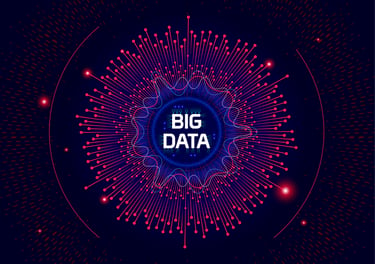March Madness: Evaluating the talent on your team
I thought I'd wait until March Madness started to write a March Madness post, so I didn't have to...

 What makes Big Data so ‘Big’? Big data has transcended industries, extending beyond just the tech sector into new frontiers. As new industries progressively leverage the power of analytical insights, the market is primed for immense growth - projected to grow from $307.52 billion in 2023 to $745.15 billion by 2030 according to Fortune Business Insights. To put that number into perspective, the world's largest automaker, Toyota, has a current market cap valued at approximately $250 billion. Let’s explore five unexpected industries harnessing Big Data to innovate!
What makes Big Data so ‘Big’? Big data has transcended industries, extending beyond just the tech sector into new frontiers. As new industries progressively leverage the power of analytical insights, the market is primed for immense growth - projected to grow from $307.52 billion in 2023 to $745.15 billion by 2030 according to Fortune Business Insights. To put that number into perspective, the world's largest automaker, Toyota, has a current market cap valued at approximately $250 billion. Let’s explore five unexpected industries harnessing Big Data to innovate!
Given the increasing global population and the depletion of arable land, harnessing big data becomes imperative for human survival.
The world has lost a third of its arable land due to erosion or pollution in the past 40 years
Source – The Guardian
The world’s population is expected to increase by nearly 2 billion persons in the next 30 years, from the current 8 billion to 9.7 billion in 2050 and could peak at nearly 10.4 billion in the mid-2080s
Source – United Nations
With the industry facing immense staffing shortages and a surge in global health crises, the use of big data has become a necessity to provide the best possible patient care.
By 2025, the U.S. is estimated to have a shortage of approximately 446,000 home health aides, 95,000 nursing assistants, 98,700 medical and lab technologists and technicians, and more than 29,000 nurse practitioners
Source - Mercer
As fast fashion explodes and consumer preferences shift toward online retailers, retail brands must harness big data to remain competitive.
Clothing sales doubled from 100 to 200 billion units a year, while the average number of times an item was worn decreased by 36% overall
Source – Earth.Org
eCommerce Revenue is expected to show an annual growth rate (CAGR 2023-2028) of 10.24%, resulting in a projected market volume of US$3.68tn by 2028
Source – Statista
The adoption of big data has not only improved performance and player safety but has also enabled franchises to increase profitability by monitoring fan consumer activity.
More than 56% of sports teams reportedly use data analytics to inform strategic decisions
Source - Zipdo
Big data is revolutionizing space exploration, enabling humans to better protect spacecraft and astronauts.
The Square Kilometre Array (SKA), the largest radio telescope ever built, will generate 700 terabytes of data every second, equivalent to roughly 35 times the data stored in the Library of Congress
Source - Venture Beat
Big Data is everywhere! Therefore, your organization – irrespective of industry – should be considering how to harness analytical insights to gain a competitive advantage. Reach out to our experts here to initiate the conversation around pairing your company with elite talent in big data.

I thought I'd wait until March Madness started to write a March Madness post, so I didn't have to...
March 18, 2011

Kansas City continues to grow as a destination for companies aiming to build data centers,...
March 27, 2025

The 2018 Salesforce World tour stopped in the Big Apple on Thursday, April 26, 2018 and our New...
May 07, 2018